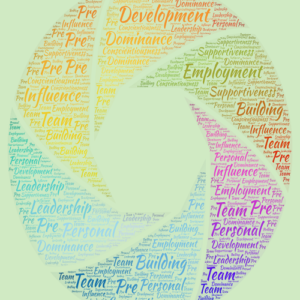Description
Risk-taking is an important part of work. On the job, people who are prone to risk-taking can be either a benefit or a liability to the company, depending on the corporate identity, the economic climate, and the positions they hold. In an environment which would-be danger exists if something went wrong, keeping the amount of risky behavior to a minimum is essential to job safety. In other jobs, such as in the business or creative fields, comfort with risk is essential for success. The very highest level of risk-taking can result in serious and even life-threatening consequences, and is rarely desirable.
The decision-making process is risky – when making decisions, it is a good idea to weigh the potential costs and rewards of each alternative, as the outcomes are often unsure. Certain combinations of personality traits result in impulsivity, leading people with such characteristics to make risky decisions without the forethought to plan for the worst-case scenario. In addition, impulsive individuals can be careless and less invested in the outcomes of their work. This can lead to sloppy, irresponsible risk-taking that could harm an organization as a whole. Other traits result in individuals who are paralyzed by uncertainty, and avoid risk-taking at all costs. These people might defer decision-making to others, or require excessive advice before acting.
The primary personality traits measured to assess propensity for risk-taking are as follows:
- Sensation-seeking
- Harm-avoidance
- Comfort with ambiguity
The mediating personality traits measured to assess propensity for risk-taking are as follows:
- Conscientiousness
- Reward Dependence
- Locus of Control
Vitals
No. of questions: 54
Question type: Self-report, situational
Estimated completion time: 15 minutes
Shorter versions of assessment: N/A
Recommended age level: 18+
Qualification Level: Class A
Compliance: APA standards; EEOC standards (gender,
age, disability)
Validation Information:
● Sample Size: 7,459
● Cronbach’s Alpha range: 0.89
Features
Benchmarks: Available (general population and 24 industries)
Interview Questions: Available
Group Comparisons: Available
Report Includes:
● Summary with Risk-taking Style
● Introduction
● Graphs
● Detailed narrative interpretation
● Strengths and Limitations
● Advice
Factors and Scales:
Overall Score plus 6 scales:
● Sensation-seeking: Assesses the degree to which a person has a desire for novel and exciting experiences.
● Harm-avoidance: Extent to which a person steers clear of negative/harmful consequences.
● Conscientiousness: Assesses the degree to which a person is rule-abiding, careful, responsible, and less likely to make unwise and dangerous risks.
● Locus of Control: Assesses the degree to which a person believes he or she has control over what happens in his/her life.
● Comfort with Ambiguity: Assesses the degree to which a person is comfortable dealing with the uncertainty involved in risk-taking.
● Reward Orientation: The extent to which a person is more likely to take risks if there is a potential for payoff.







Reviews
There are no reviews yet.